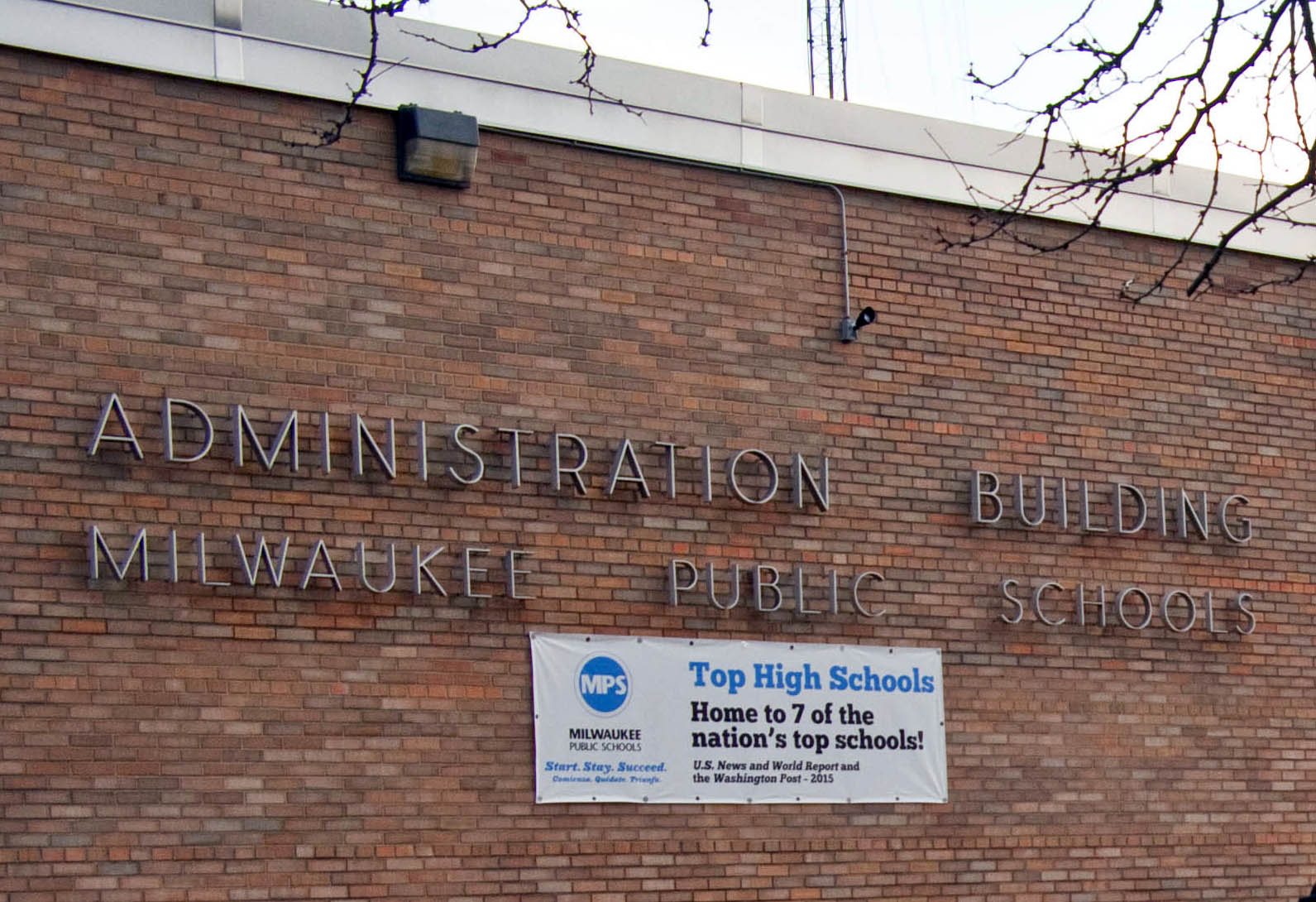The Trump administration is giving public K-12 schools 10 days to eliminate diversity, equity and inclusion programs or be at risk of losing federal funding.
In a letter Thursday to state leaders across the country, the U.S. Department of Education said Title I funding would be threatened if schools failed to follow its interpretation of civil rights laws.
Title I is a federal program that provides funding to school districts with a high percentage of children from low-income families to help ensure all students meet academic standards.
Stay informed on the latest news
Sign up for WPR’s email newsletter.
This year, Wisconsin received approximately $216 million in Title I funds, according to the Wisconsin Department of Public Instruction.
About $82 million of that money went to Milwaukee Public Schools.
State Superintendent Jill Underly said students, educators and schools need support, not threats.
“The Department of Public Instruction is currently reviewing [the Department of Education’s] justification and authority to request sign off from Wisconsin schools on the federal agency’s political beliefs,” Underly said in a statement. “As we stated in February, we remain confident Wisconsin schools and the DPI are in full compliance with the law and remain committed to providing the best education possible for our students.”
On Feb. 14, the Department of Education sent a “Dear Colleague” letter giving educational institutions 14 days to eliminate diversity initiatives or risk losing federal funding.
At that time, DPI issued guidance to school districts encouraging a “measured and thoughtful approach, rather than immediate or reactionary responses to the federal government’s concerns.”
In February, the Green Bay school board voted to remove DEI language from several positions in fear of losing $40 million in federal funds.
Secretary of Education Linda McMahon has not clearly defined what the administration considers a violation of civil rights law. The February letter said institutions must “cease using race preferences and stereotypes as a factor in their admissions, hiring, promotion, scholarship.”
In a related document addressing frequently asked questions about how the administration would interpret Title VI of the Civil Rights Act of 1964, the agency said: “Many schools have advanced discriminatory policies and practices under the banner of ‘DEI’ initiatives.”
The document went on to say that schools could engage in historical observances like Black History Month “so long as they do not engage in racial exclusion or discrimination.”
State Rep.Francesca Hong, D-Madison, who serves on the Assembly Committee on Education, said any funding cuts to schools will directly harm families across the state, especially those who are in smaller and rural communities.
“It is truly cruel and inhumane to make the condition of federal funding pitting students against one another,” Hong said. “I am confident that the Department of Public Instruction is in full compliance of federal requirements to receive federal funds.”
While the federal government is only responsible for about 10 percent of money that goes to K-12 schools, Title I is one of the largest federal grants overseen by the Department of Education. In the current fiscal year, the federal government set aside more than $18.38 billion for Title I.
Nearly 90 percent of U.S. school districts benefit from the program.
“Federal financial assistance is a privilege, not a right,” Craig Trainor, the department’s acting assistant secretary for civil rights, said in a statement. “When state education commissioners accept federal funds, they agree to abide by federal antidiscrimination requirements. Unfortunately, we have seen too many schools flout or outright violate these obligations, including by using DEI programs to discriminate against one group of Americans to favor another based on identity characteristics.”
Editor’s note: NPR contributed to this report.
Wisconsin Public Radio, © Copyright 2025, Board of Regents of the University of Wisconsin System and Wisconsin Educational Communications Board.




